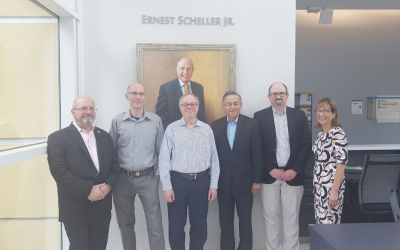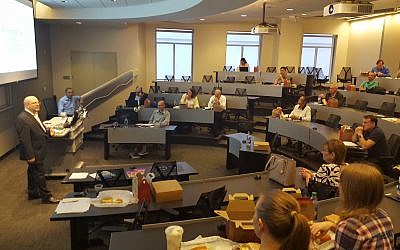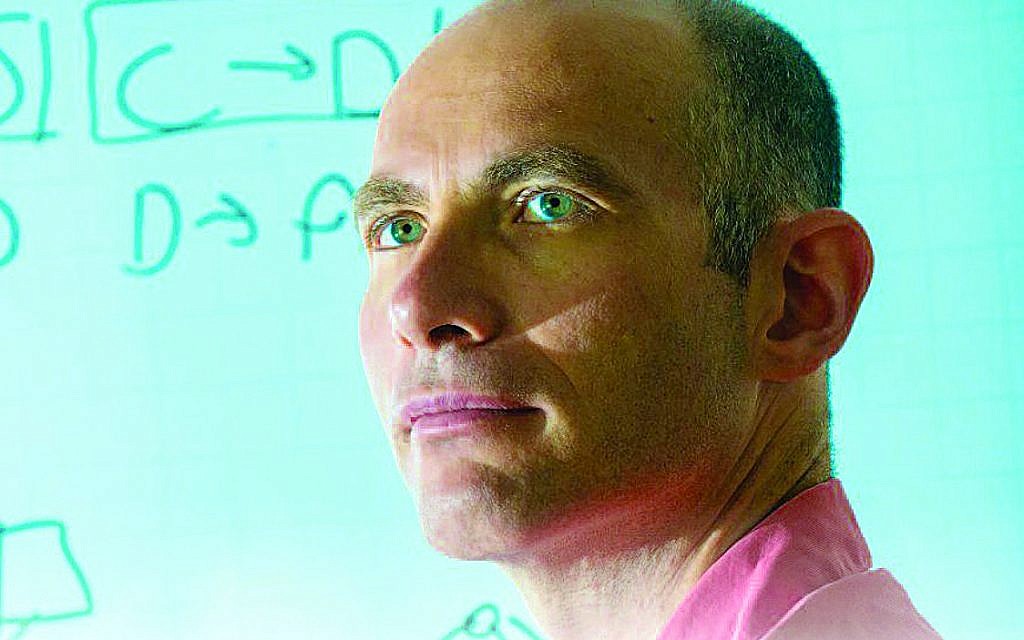Artificial Intelligence As Team Player
AI needs to improve the way it interacts with humans, says BGU Professor Ya’akov “Kobi” Gal.
Friend or Foe? Exploring the Artificial Intelligence Revolution. That was the topic of Ben-Gurion University of the Negev Professor Ya’akov “Kobi” Gal’s lectures recently at Georgia Tech, and with business leaders in the Jewish community.
AI is often portrayed as the enemy for replacing humans, but Gal believes computers have gotten a bad rap. “Although artificial intelligence is a young technology – it’s only been around a few years – it has taken such a strong presence in our daily lives and it doesn’t communicate very well with people. We are used to communicating with other people as team players,” said Gal, who is head of BGU’s Human Computer Decision-Making Lab and an associate in Harvard University’s School of Engineering and Applied Sciences.

“It turns out computers are not team players. They don’t know how to share problem-solving in a way that complements the abilities of different teammates. They make a lot of mistakes. That’s why there’s such an inherent fear of artificial intelligence. I try to elevate how communication could be improved.”
Get The AJT Newsletter by email and never miss our top stories Free Sign Up
Gal shared his research on AI on Aug. 1 when he spoke to 50 Georgia Tech faculty and executives at the school, and about the same number at a second event co-sponsored by the Israeli Consulate, Conexx: the America Israel Business Connector and the American Associates of Ben-Gurion University in the Negev, Florida region, which includes the Southeast.
In the short term, Gal said, AI might eliminate some human tasks, such as replacing drivers in autonomous vehicles. But in the long term, there are opportunities to develop new jobs for training and other tasks involving the new technology.
“We just have to give it time and to get computers to be better teammates for people to gain from the advances of artificial intelligence,” he said. “We need to get computers to be better partners when they interact with human users. Artificial intelligence, for example, can be used for social good as opposed to controlling what we do or sending us intimidating emails.”

Gal mostly studies the use of AI in e-learning and volunteer websites. “In my eyes, they are similar. They include many different people, interacting with a computer system for the purpose of creating or disseminating knowledge.” Students and volunteers share a similar interest in learning, and Gal and his researchers try to build technology to keep them motivated and engaged.
AI might predict when a website user is getting bored or tired and fire up a message that says: “You are doing a wonderful job,” or refer the user to a forum in which others are discussing similar interests, Gal said.
In the classroom, AI could suggest to a teacher that a student is disengaged and offer an opportunity for the teacher to decide what to do. “It allows the teacher to support multiple students in the classroom working together, but not communicating or intervening directly with the students. I use the metaphor of a friendly parrot sitting on the shoulder of someone. Rather than monitor and exploit the user, it is trying to help them and doesn’t disturb them, but guides their work and helps other people support them in the best possible way. That’s a better role that artificial intelligence can engage in.”
Gal said his long-term vision is to build computer systems to be better collaborators that will work well with humans instead of just interacting with them.
“They are designed to help people, not to intimidate people or disrupt their work.”
AI is not yet there yet, he said. “We are still not at the promised land where computers can interact with users in the best possible way.”
But Gal remains optimistic. “What a wonderful opportunity artificial intelligence has for fundamentally shifting the way we interact with others, the way we study and conduct business,” he said.
Conexx President Guy Tessler found Gal’s analogy of AI as parrot, helping with learning and problem-solving, quite clever. “AI will impact many industry sectors and the global economy. Israel will play a key role in developing this technology to produce solutions to the world’s most challenging problems.”





comments